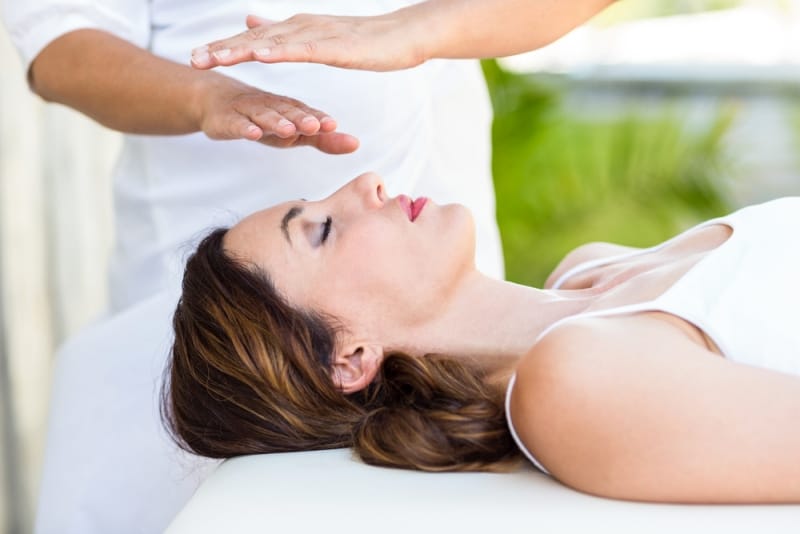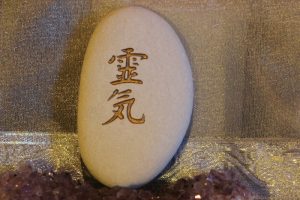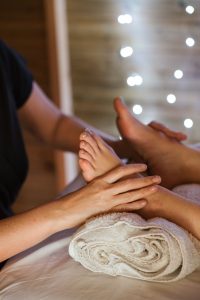Last Updated on September 30, 2022
How to explain Reiki to skeptics? Can the practice of palm healing really heal the body and promote its spiritual, physical, mental, and emotional wellbeing?
For those unfamiliar, Reiki is a therapeutic practice that uses a lay-on-hand technique to promote healing in the body. This practice doesn’t directly treat any specific ailment—it acts more like a holistic treatment ritual that benefits the body.
The term Reiki originated from Japan and can be roughly translated to “universal life force”. Reiki uses the energy (or qi) of the universe to promote the natural flow of healing to the body. When our body’s energy reserves are low, our body will be suspect to all forms of illnesses.
How does Reiki alleviate this depletion or lack of energy? Trained practitioners act as the conduit of energy by placing their hands above their clients. They channel the universal energy to heal the client while absorbing the healing properties of the energy transfer as well.
How do Skeptics See Reiki?
Many skeptics believe that there are few scientific instruments and merit to Reiki. And it’s not hard to see how they’ve arrived at that conclusion.
If you take a step back, the idea for an intangible force assisting the healing process would sound perplexing.
Not only do the claims of Reiki being pseudoscience exist, but research has disproved certain parts of it as well. Couple that to the fact that practitioners can “heal” clients from afar—it’s no surprise suspicion against Reiki is strong.
A JAMA Reiki study by Linda Rosa investigated the rate at which practitioners could identify the closest hand to theirs. This would be how they could tell the person’s human energy field above their skin. The hit rate was 44%—which was just about random and is significantly less than what Therapeutic Touch practitioners spout.
With studies conducted that prove the frailty of Reiki, does that disprove this traditional practice entirely?
Not quite.
Skeptic Tries Out Reiki
Lauren Del Turco was initially skeptical about the effects of Reiki. She tried to dig to find the logic in it since she thought that energy transfer was just placebo and nothing more.
But after a while, she gave it a shot, and the effects surprised her.
She laid down the Reiki practitioner’s mat, readying herself for the therapy. Her practitioner performed the practice on her, and then she felt a tingling sensation on her heart. Initially, her practitioner told her that her heart was guarded and felt blocked—which the treatment had, in some way, soothed.
By the end of the session, she was told to sit up and relax. It was as if a calm surge washed over her, like inner peace. She may have been skeptical at the start, but undergoing the Reiki session quickly shifted her opinion on Reiki.
Related: Where Does Reiki Energy Come From?
How to Tell Skeptics that Reiki is a Legitimate Practice?
Ask the countless patients who have said that Reiki helped them with their illnesses.
Of course, medicinal treatment still reigns as the best solution for specific illnesses. Using Reiki as a substitute for advice from a doctor is, on the other hand, not advisable. The ingestion of proper medicine and administering of proper treatment holds an essential role in health and treatment.
Reiki does however benefit the body in numerous, holistic ways, and studies have proved it.
The closest scientific term that holds an influence on Reiki’s energy levels is homeostasis or our body’s equilibrium. Facilitated by therapeutic touch, the practitioner balances the patient’s body’s biofield, or energy blueprint, to promote self-healing in the body. This creates harmony in our bodies, promoting an inner healthy state—should the person stay in tune with it.
All that said, Reiki goes on as a supplementary therapy to others experiencing forms of illnesses. If a skeptic questions its legitimacy, lead them to studies that promote the practice. Or have them try it out themselves before they make any sweeping conclusions.
Health Benefits of Reiki to Tell Skeptics

Reiki may not cure cancer or other disabilities outright—but it does help in promoting health in other aspects.
Here are some health benefits you can get from Reiki to tell skeptics about:
1) Relieves pain and anxiety
Some studies showed that Reiki had helped patients feel less pain from their conditions. A particular study showed that patients treated for cancer who underwent distant Reiki felt less fatigue and anxiety. Another study showed that Cesarean-operated women felt significantly less pain and fatigue after 1-2 days of delivery with Reiki.
2) Treats depression
Reiki could be a possible practice to alleviate depression, though more research has to be made. In a study of older men who felt pain, those who performed Reiki felt fewer symptoms of anxiety and depression. They also felt more curious about the world, practiced self-care more often, and felt more relaxed.
3) Improves symptoms of certain conditions
Reiki helps improve and relieve the pain from certain physical conditions. Some of these conditions include arthritis, headaches, nausea, and insomnia. Reiki activates the parasympathetic nervous system, which causes the body to relax. The relaxation response Reiki had over these conditions helped improve the symptoms of these conditions.
4) Promotes spiritual and emotional wellbeing
Reiki promotes energy healing and mental clarity in an alternative way. Undergoing Reiki helps the development of your emotional and spiritual side by allowing your mind to live in the present. The peaceful, relaxed, and light sensation gives patients, distance healing or not, a chance to explore and reflect upon themselves.
5) Relieves chronic pain
Whether you’ve undergone major medical surgery or have chronic pain, Reiki helps bring your mind off the pain to relax. The energy transfer technique eases people’s feelings of chronic pain on the emotional level instead of an anatomical one. This helps calm down the person and reshapes their perception of the pain.
Conclusion
Reiki practice does marvelous things to the body and soul. It also helps people in their times of pain and hardship.
While skeptics may not recognize the positives of Reiki, there’s a certain number of people who Reiki has helped heal.



